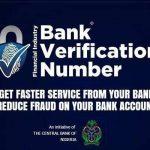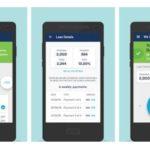Last Updated on June 23, 2025 by admin
In Nigeria, the regulatory framework governing moneylenders is primarily designed to ensure transparency, protect consumers, and maintain financial stability. This framework is vital for anyone intending to operate as a moneylender in the country.
At the core of this regulatory structure is the Moneylenders Act, which outlines the legal requirements and obligations for operating such a business. The Act mandates that individuals or entities must obtain a license from the relevant state government before commencing operations.
This requirement emphasizes the decentralization of regulation, as each state in Nigeria has its specific procedures and conditions for licensing.
However, the regulation encompasses aspects like interest rate caps, record-keeping, and disclosure obligations to prevent exploitative practices. Moneylenders must adhere to these provisions to secure and maintain their licenses.
The regulatory framework also dictates the penalties and sanctions for non-compliance, ensuring that moneylenders operate within the legal boundaries.
The framework requires moneylenders to regularly submit reports to the relevant authorities, providing transparency and facilitating supervision.
Compliance with anti-money laundering requirements is another critical aspect, aligning with broader financial system regulations in Nigeria. Overall, understanding this regulatory landscape is essential for any prospective moneylender, as non-compliance can result in heavy fines, revocation of licenses, or other legal consequences.
You can also read:How to apply for First Bank Salary Loans and FirstAdvance
The Importance Of Obtaining A Moneylender License
Obtaining a moneylender license is not just a legal formality—it’s a strategic move that builds trust, credibility, and long-term sustainability for anyone in the lending business. Here’s why it matters:
Legal Compliance
Operating without a moneylender license is illegal in many jurisdictions, including Nigeria. A license ensures you’re compliant with state laws and protected from legal penalties
Builds Trust with Clients
Borrowers are more likely to trust and engage with licensed lenders. It signals professionalism, transparency, and accountability—especially important in a sector where trust is everything.
Competitive Advantage
A license gives you a leg up over unlicensed operators. It allows you to advertise openly, access more customers, and even attract investors who value regulatory compliance.
Regulatory Protection
Licensed lenders are recognized by regulatory bodies like the Federal Competition & Consumer Protection Commission (FCCPC) in Nigeria. This protects both the lender and the borrower from exploitative practices.
Business Growth & Expansion
With a license, you can scale your operations, partner with fintech platforms, and even access funding opportunities that are off-limits to unlicensed entities.
If you’re considering entering the lending space, I can walk you through the steps to get licensed in your state. Want to explore that next?
Eligibility Criteria For Registering As A Moneylender In Nigeria
To obtain a moneylender license in Nigeria, you’ll need to meet both legal and regulatory requirements, which can vary slightly by state. Here’s a general overview of the eligibility criteria:
Legal & Corporate Requirements
- Register a company with the Corporate Affairs Commission (CAC).
- Provide Certified True Copies (CTC) of:
- Certificate of Incorporation
- Memorandum and Articles of Association (with lending as an object)
- CAC Forms (e.g., Form 1.1 or Forms 2 & 7, depending on registration date)
Financial & Tax Documentation
- Tax clearance certificates:
- For individuals: personal tax clearance
- For companies: 3-year tax clearance for at least two directors
- Evidence of financial stability, such as bank statements or a bank reference letter
- Proof of a current account with a licensed Nigerian bank
Security & Compliance
- Police clearance for the applicant or company directors
- Business plan outlining your lending model and operations
- TIN (Tax Identification Number) or evidence of application
- Passport photographs and valid ID of directors or individual applicant
Regulatory Oversight
- Apply to the relevant state authority (e.g., Ministry of Home Affairs or Magistrate Court)
- For online lending, register with the Federal Competition & Consumer Protection Commission (FCCPC) and the Nigeria Data Protection Commission (NDPC)
Some states, like Lagos, require an additional clearance from the Commissioner of Police before issuing the license.
The Application Process For Obtaining A Moneylender License In Nigeria
Here’s a step-by-step breakdown of the application process for obtaining a moneylender license in Nigeria. While the exact steps may vary slightly by state, this guide reflects the general procedure, especially in places like Lagos:
Step 1: Register Your Business
- Incorporate your company with the Corporate Affairs Commission (CAC).
- Ensure your Memorandum and Articles of Association include moneylending as an object.
- Obtain your Tax Identification Number (TIN) and open a corporate bank account.
Step 2: Prepare Required Documents
- Letter of intent addressed to the Chief Magistrate and Commissioner of Police.
- Police clearance for each director.
- Tax clearance certificates (typically 3 years for directors).
- Valid ID and passport photos of directors.
- Business plan outlining your lending model.
- Bank reference letter and recent bank statements.
Step 3: Apply to the Magistrate Court
- Submit an application to the Chief Magistrate in your jurisdiction.
- Attach all required documents.
- If approved, you’ll receive a Magistrate’s Certificate, confirming you’re a “fit and proper person” to operate as a moneylender.
Step 4: Apply to the Ministry of Home Affairs
- With your Magistrate’s Certificate, apply to the Ministry of Home Affairs (or equivalent in your state).
- Submit Form B and Form C (Moneylenders Ordinance forms).
- Pay the application and licensing fees.
Step 5: Site Inspection & Final Approval
- Officials may inspect your business premises.
- Once satisfied, the Ministry will issue your Moneylender License, typically valid for one year and renewable annually.
Step 6: Register with Federal Regulators (if lending online)
- Register with the Federal Competition & Consumer Protection Commission (FCCPC).
- Comply with Nigeria Data Protection Commission (NDPC) requirements.
You may also Like:How to get Nigeria federal mortgage housing funds NHF loan and Application Process
Renewal of Money Lending License
Renewing a Money Lending License in Nigeria is a yearly requirement, and the process is fairly straightforward if you’ve already been licensed. Here’s what you’ll typically need to do:
- Application for Renewal – Submit a formal application using Form B (Moneylenders Ordinance) to the Magistrate Court.
- Endorsement from Magistrate – Obtain a signed Form C from the Chief Magistrate confirming your eligibility to continue operations.
- Updated Tax Clearance – Provide current tax clearance certificates for the company and its directors.
- Evidence of Payment – Show proof of payment of the renewal fee to the appropriate state authority.
- Re-inspection – Be prepared for a possible site inspection by officials from the Ministry of Home Affairs or equivalent body.
Timing
- Licenses are typically valid for one calendar year and must be renewed before December 31st to avoid disruption.
- List of 9mobile/etisalat data Plan and subscription code - January 27, 2026
- How to buy data, Request and gift dataon Airtel - January 26, 2026
- How to buy Glo data plan and cancel data Renewal - January 24, 2026









